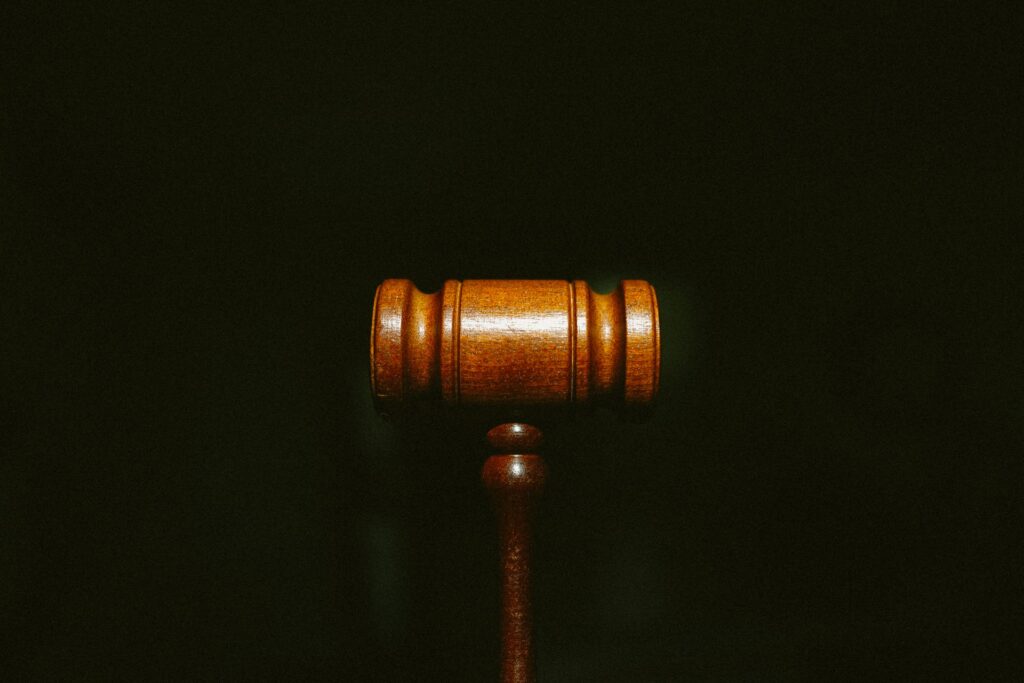If you’ve never been a part of divorce proceedings before, you may be shocked to learn that only a tiny percentage end up going to trial.
Lawyers and judges encourage the parties involved to reach a settlement to avoid the costly and time-consuming process of a trial. Still, while you shouldn’t go into your divorce expecting it to end in a trial, it’s best practice to prepare for the possibility, regardless of how remote it may be.
A divorce attorney can best outline what you can expect from a divorce trial. Keep reading for a brief outline of the process itself.
Understanding A Divorce Trial
As the name implies, a divorce trial is a legal proceeding in front of a judge in a courtroom. A lawyer will represent you and make arguments and present evidence to support your point of view that you weren’t at fault for your marriage’s breakdown.
They may even call witnesses. The process can end in as little as a day or go on for years, depending on the circumstances and what the judge decides.
It is a mentally and emotionally draining time. That’s one of the many reasons why an experienced family law attorney will try to work with both parties to create an agreement and prevent a trial. If you can’t agree to an uncontested divorce, other options are still available to avoid a trial.
How To Prepare
Your lawyer will do what they can to make the most robust case possible on your behalf, but understand that this will likely put you in more than one uncomfortable position.
Besides preparing opening and closing remarks and researching previous cases, they’ll work with you to gather the evidence you may have, interview potential witnesses, and outline your assets.
Expect the examination of evidence to expose you somewhat. Anything that could potentially harm your case needs to be acknowledged so that your lawyer can prepare a response.
Likewise, interviewing witnesses can severely strain the relationships you have with those people. Given that witnesses will most likely be friends, family, and co-workers, they may be reluctant to take the stand or feel like they are choosing sides. If you don’t get hurt by the proceedings, you should prepare for the possibility that someone else will be.
The Procedure Itself
In Tennessee, the judge presiding over your case will make the final ruling. It would help if you forgot any preconceived notions about how a judge will rule once the trial starts.
The plaintiff–that is, the person who filed for divorce–will have the first opportunity to make their argument, present evidence, and call on witnesses. The defendant then goes next and does the same thing. The judge may choose to grant the plaintiff a chance to respond to parts of the defendant’s testimony and whether or not to hear closing arguments.
What Matters to A Judge
Ultimately, the judge is in control of the process from start to finish. Thus the trial can take on different forms to what you expect. For example, a judge may separate some issues (like child custody) into another trial to keep things from getting even more complicated.
It’s important to note that a judge will ultimately rule in a way that they believe to be fair, which may differ from your point of view. Given that they bring a fresh perspective to both sides’ arguments, you can’t reasonably predict whose side they will come down on.
The judge’s ruling comes in the form of a Final Divorce Decree, which is legally binding and carries severe consequences should it be violated. Each party has thirty days to file an appeal. Otherwise, the Final Divorce Decree stands.
Alternatives To A Divorce Trial
For all the reasons you should avoid a divorce trial (if possible), having little to no influence over the judge’s determinations should be enough for you and your ex-spouse to try and work out your separation through other means.
Options available include:
- Mediation: Both spouses agree to hire a third-party to mediate and help resolve problems caused by the separation. Mediation is ideal because it maintains privacy by avoiding a trial entirely. A mediator will strive to find mutually beneficial solutions. Mediation can address as few or as many issues as both parties agree to and can be used to reach temporary and long-term solutions.
- Arbitration: An arbitrator acts like a private judge. Both parties will agree on the arbitrator and make their cases, with attorneys’ help if they desire, without actually going to trial. Unlike mediation, the arbitrator has the final say. Arbitrators are especially useful when used to resolve lingering issues mediation couldn’t address.
- Collaborative Agreement: By signing a collaborative agreement, you and your spouse agree to resolve the separation (with attorneys’ help) by going to trial. The attorneys helping with the process will ensure that both sides address every situation to avoid court.
Get Help from Attorney Hunter Fowler
Hunter Fowler is an experienced attorney working in Murfreesboro, Tennessee, with experience in divorce, child custody, and other areas of family law. Let a well-versed lawyer help you navigate your options and contact Hunter Fowler today.

